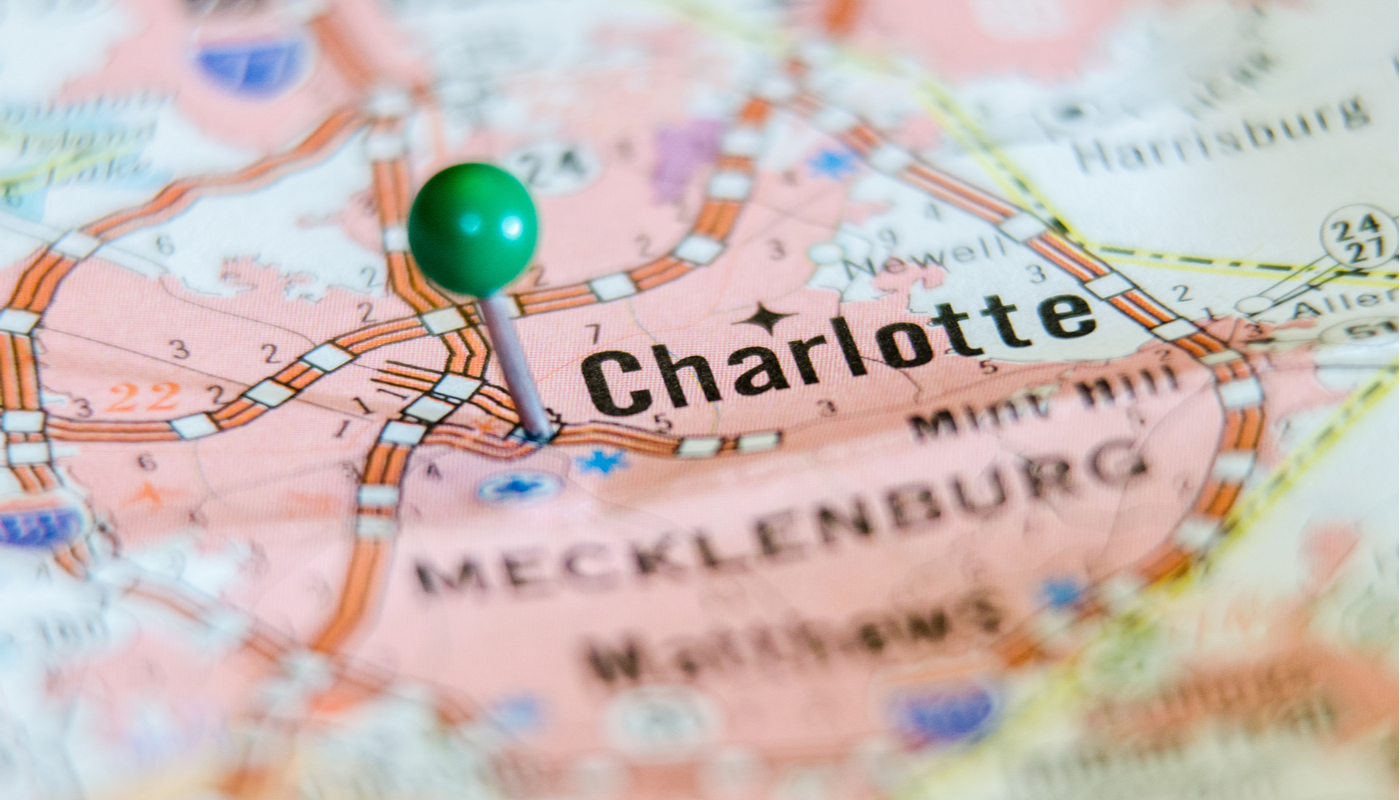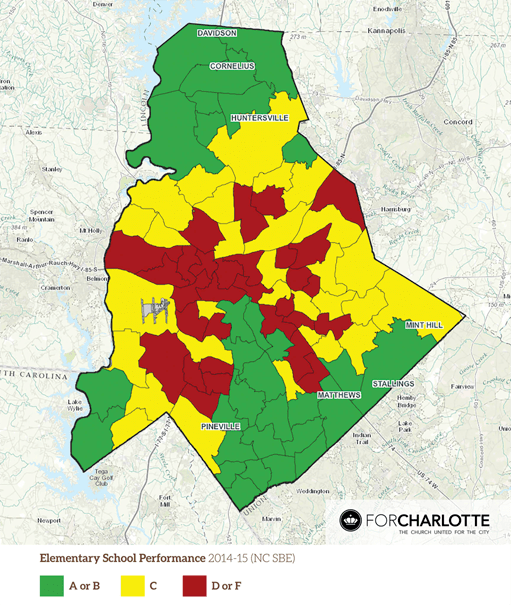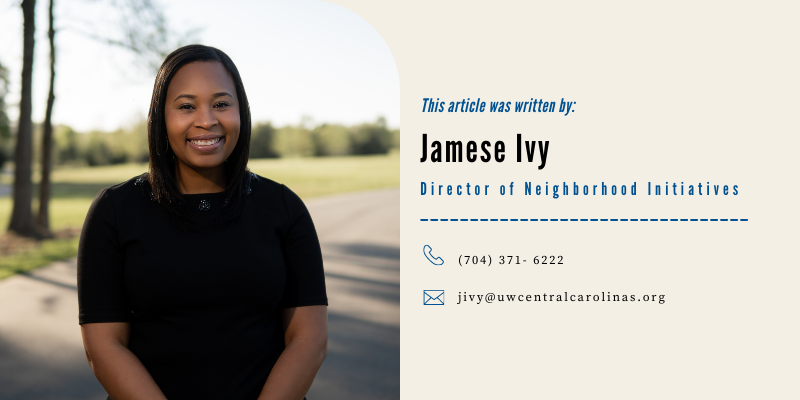
The Zip Code Lottery
It’s hard to believe, but a person’s life trajectory can be predicted based on their zip code. Five simple numbers that can impact their destiny. For many living in Charlotte, experiences such as a quality education, access to healthy foods and the opportunity to obtain the American dream are not within their reach. All because of the neighborhood in which they live.

Charlotte has deeply rooted structural racism and segregation that has concentrated poverty geographically. For example, take a look at the neighborhoods in Charlotte. In a wedge shape includes neighborhoods like Myer’s Park and Dilworth, which are high wealth areas with mostly white residents. However, neighborhoods such as West Charlotte are part of the crescent, where household incomes are much lower with mostly black residents. The wedge and the crescent were created by Jim Crow laws and the redlining maps from the 1930s, which prevented black families to move into those high wealth and predominately white areas. The effects of Jim Crow and redlining are still prevalent in Charlotte today.
I was born and raised on the West side of Charlotte and I am a product of the Charlotte-Mecklenburg School system. During my primary education, I saw the differences in neighborhoods around Charlotte because my mother bused me to the opposite side of town to receive a more rigorous education.
Once in college, I took interest in how people are affected based on their geographies. I, a black girl raised on the West side of Charlotte was able to be the first in my family to go to college and receive a bachelor’s and master’s degree in Political Science and Geography. I moved back to Charlotte to apply what I had learned in school to help my family and all residents of Charlotte achieve the American dream.
My life and career has come full circle. I have dedicated my education and experiences to do my best to strive for racial equity in housing, education and health in Charlotte. My personal experiences and educational background led me to my new position as Director of Neighborhood Initiatives for United Way of Central Carolinas.
In 2017, United Way launched United Neighborhoods, an initiative that empowers residents in historically challenged neighborhoods to identify their most significant needs and choose the nonprofit organizations they believe can best deliver neighborhood-focused services. In 2022, the Lakeview neighborhood will join two other United Neighborhoods pilot communities – Renaissance West and Grier Heights. Each of these neighborhoods have experienced high poverty rates as a direct response to decades of structural racism.
At United Way, we believe that people proximate to the challenges are best positioned to identify solutions. The United Neighborhoods model brings together the residents of the neighborhoods and the lead neighborhood organization, referred to as Community Quarterbacks who dedicates their time, resources, staff, funding and relationship building to a specific geography.
Residents are the experts in their own lives. They know what they need but may not have the resources to get it. The Community Quarterbacks are able to walk alongside residents, to listen to their needs and help them reach their goals for their communities.
United Way supports these efforts by providing funding using trust-based philanthropy and technical assistance to the agencies who are doing the ground-level work. The effort put in by the residents, the quarterbacks, agencies and United Way are all generational investments.
We understand that the history of philanthropy has tried to fix people. We also know we have to fix systems. With United Way’s expansion to place-based work, we are taking our dollars and trusting those who are proximate to the problem to get to the solution. United Way is also making space for cross sector agencies to coordinate services by breaking down silos to communicate, collaborate and learn from one another for the betterment of all of Charlotte and surrounding areas. By creating this space, we are also creating opportunities for cross sector agencies to work collectively towards common goals in each neighborhood and ultimately in Charlotte. This is a bold, innovative and new approach to philanthropy.
Learn more about United Neighborhoods.





